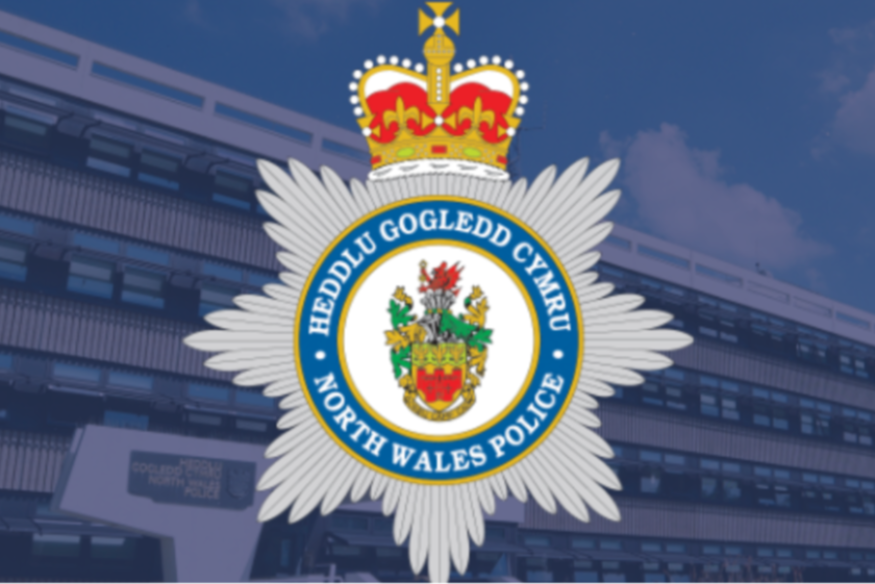
February 12, 2024 - 582 views
February is the month of the year when people begin to think about booking their summer holidays and most of us look forward to an annual holiday or short break which, often, we find and book online.
But fraudsters also love the internet. They use fake websites, listings, emails, advertisements, social media posts and texts – and also phone calls – to trick you into paying for a holiday that doesn’t exist.
To help save you from losing your holiday and your money, the Police and Crime Commissioner for North Wales has teamed up with Get Safe Online to put together some expert tips on safely searching and booking holidays and travel with confidence.
Get Safe Online is a leading source of unbiased, factual and easy-to-understand information on online safety in the UK.
PC Dewi Owen from North Wales Police Cybercrime Team said: “With the steep rise in the cost-of-living, people across North Wales may be thinking about how they can save money on their next well-earned break.
“Cybercriminals will be looking to take advantage of this by creating fake websites, listings, e-mails, adverts, social media posts or text messages promoting fake ‘great deals’. Some victims don’t even realise that they’ve been scammed until they arrive at their holiday destination.
“With 6,457 people reporting that they fell victim to holiday fraud in the UK between April 2022 and March 2023 according to Action Fraud, resulting in losses of £15.3m, don’t let your dream holiday become a nightmare. Follow the advice and guidance to make sure that it’s not the scammer going away on a nice holiday with your money.”
North Wales Police and Crime Commissioner Andy Dunbobbin said: “Everyone looks forward to their summer holidays and right now, while the weather is cold and grey in the UK, is the time that many people in North Wales start to dream and plan for warmer times.
“But it’s important for people to be vigilant of the dangers posed by fraudsters on the internet and to take a few moments to follow advice and look into the deal they are presented with. There may well be no concerns at all, but it’s better to be cautious than be caught out.”
Tony Neate, CEO at Get Safe Online comments: “As the cost of living remains high, we want to help protect the people of North Wales’s hard-earned cash and urge people to stay alert when it comes to booking a holiday. Trust your instincts and remember, if a deal looks too good to be true, then it probably is.”
Top tips to keep in mind when booking
As well as thoroughly researching your package holiday, flight, accommodation, cruise, pilgrimage or other break/travel to make sure it’s authentic before you book, here are some other golden pieces of advice to consider:
- Be wary of unusually cheap holidays/flights or high deposits.
- Check that accommodation actually exists by finding it on Google Maps and looking for independent reviews and recommendations. Make sure there’s a phone number, and call the owner/agent directly to try to ascertain if the person you’re booking the holiday with is authorised to sell it to you. If the number isn’t provided, email and request it. - Ask questions to see if they have knowledge of the area.
- Check reviews on Trip Advisor or similar sites.
- If you’re booking accommodation via Airbnb, always keep communications and payment on the Airbnb platform, and don’t be tempted off it as this may indicate an attempt at fraud. Read Airbnb’s safety advice for guests.
- Never pay by bank transfer to a company or person you haven’t had personal experience of buying from previously. If it’s a fraud, you may never get your money back. Paying by credit card means more chance of getting your money back if something goes wrong.
- Check that travel agents and tour operators you book holidays and travel through are members of trade associations such as ABTA or ATOL, by checking on these bodies’ websites.
- Enter the address of the website you plan to book a holiday through, at www.getsafeonline.org/checkawebsite to check if it is likely to be legitimate or fraudulent.
- Check terms and conditions prior to making any payment.
- Before paying online or providing any confidential details, type in the website address you know to be correct (instead of following a link) and ensure the payment page is secure (begins with ‘https’ and has a locked padlock in the browser window frame).
- Keep confirmations and payment receipts, and check bank/credit card statements for irregular entries.
North Wales Police advises that if you have been the victim of holiday fraud please report it to your own bank in the first instance and then to Action Fraud at www.actionfraud.police.uk or on 0300 123 2040.
For further free, practical advice on staying safe online visit www.getsafeonline.org.







